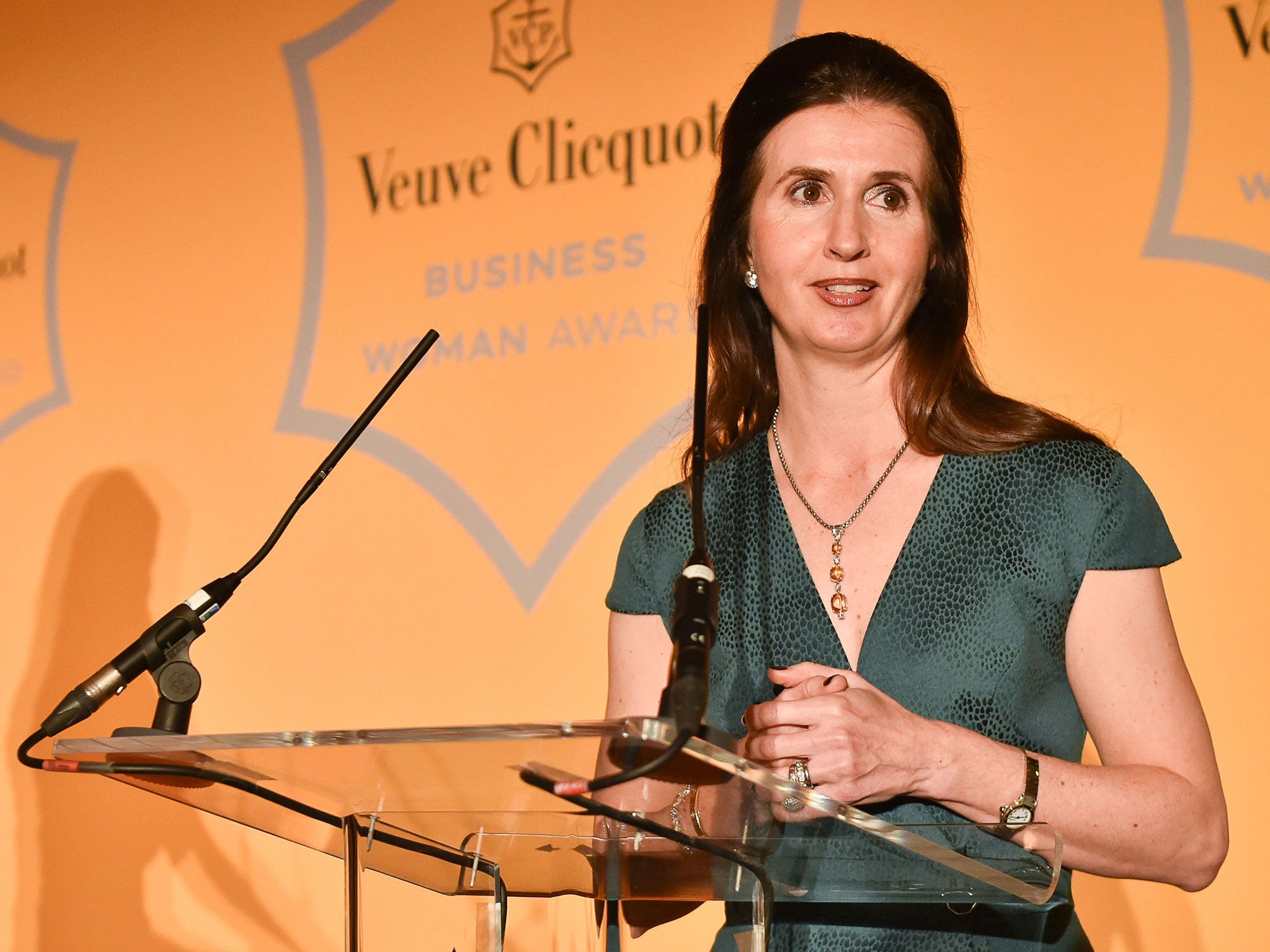Katherine 'The Great' Garrett-Cox claims attacks over her pay are down to her gender
The chief executive of Alliance Trust insisted her remuneration rates 'probably pale into insignificance compared with many male counterparts'

In the investment world, they call her Katherine The Great. But yesterday the business empress Katherine Garrett-Cox, chief executive of the £3.6bn fund management firm Alliance Trust, appeared to hint at a certain gender-based vulnerability.
She claimed that recent hostile focus on her £1.34m pay package was partly due to the fact that she was a woman.
And since much of such criticism has come from “activist shareholders” trying to shake up Alliance Trust, Ms Garrett-Cox may have added to a growing sense that wealthy, aggressive male investors are particularly targeting female-led companies – either because they think feminine bosses are a “soft touch”, or because they like a tough woman sparring partner.
Ms Garrett-Cox’s comments came two weeks after a bruising Alliance Trust general meeting, which almost turned into a referendum on her £450,000 basic pay, plus the bonuses and other payouts that took the total package to £1.34m.
It took a last-minute compromise with the US-based activist hedge fund Elliott, which had been criticising her remuneration and seeking to add three non-executives of its choosing to the board, to remove the danger of a shareholder revolt.
Asked by the BBC whether there had been more scrutiny of her pay because she is female, Ms Garrett-Cox, the winner of the 2015 Veuve Clicquot Business Woman award, said: “There is probably an element of that.”
Confessing to being “completely overwhelmed” by the level of coverage she had faced, she added: “Would that have happened if I was a man? Probably not. The media are always seeking to put a woman on the front page – for good or for bad.” Her remuneration rates, she insisted, “probably pale into insignificance compared with many of my male counterparts”.
No one from Elliott was available for comment, but Ms Garrett-Cox’s analysis was swiftly dismissed as “ridiculous” by Tim Ingram, a former Alliance Trust director who had previously backed the hedge fund and accused Ms Garrett-Cox’s company of “dismal” medium-term performance.
He said: “It is certainly not a gender issue. The problem is the company is low-achieving but awarding high-achieving pay.”
But the fact that the attack by Elliott followed a similar onslaught by the hedge fund Laxey Partners in 2011 might fuel claims that Ms Garrett-Cox’s tribulations are a part of a trend for wealthy, male investors to pick on female-led firms.
The question was first raised by Patricia Sellers, the head of Fortune magazine’s Most Powerful Women franchise, who noted that the billionaire activist investor Nelson Peltz had recently targeted three companies run by some of America’s most renowned women leaders: Du Pont, PepsiCo and Mondelez International.
While acknowledging that Mr Peltz had also taken on many male chief executives, she posed the question “Is Peltz a certified woman CEO-chaser?” adding “People wonder if he enjoys sparring with female CEOs… maybe because the women are even tougher than the guys?”
With The Independent reporting that almost half the 25 women running Standard & Poor’s 500 companies in the US were facing activist revolts, other commentators suggested that female bosses might be targeted because they were seen as less aggressive.
Ms Garrett-Cox, however, has previously dismissed suggestions that Alliance was being targeted because she was a woman, snorting with derision at the idea and telling the Daily Mail in March: “Do you mean they think I’ll roll over?”
She also appeared reluctant yesterday to elaborate on her comments about her pay, with a spokeswoman suggesting that they had simply been an off-the-cuff response to a question, rather than something she had been thinking about for a long time.
Her fellow City “superwoman” Nicola Horlick told The Independent that women business leaders attracted undue media attention simply because they were female, but she doubted Ms Garrett-Cox’s gender had anything to do with criticism of her pay.
Nor did Mrs Horlick, the chief executive of moneyandco.com, think that activist investors were deliberately targeting women bosses.
“Some of them are quite scared of women leaders,” she said.
Join our commenting forum
Join thought-provoking conversations, follow other Independent readers and see their replies
0Comments